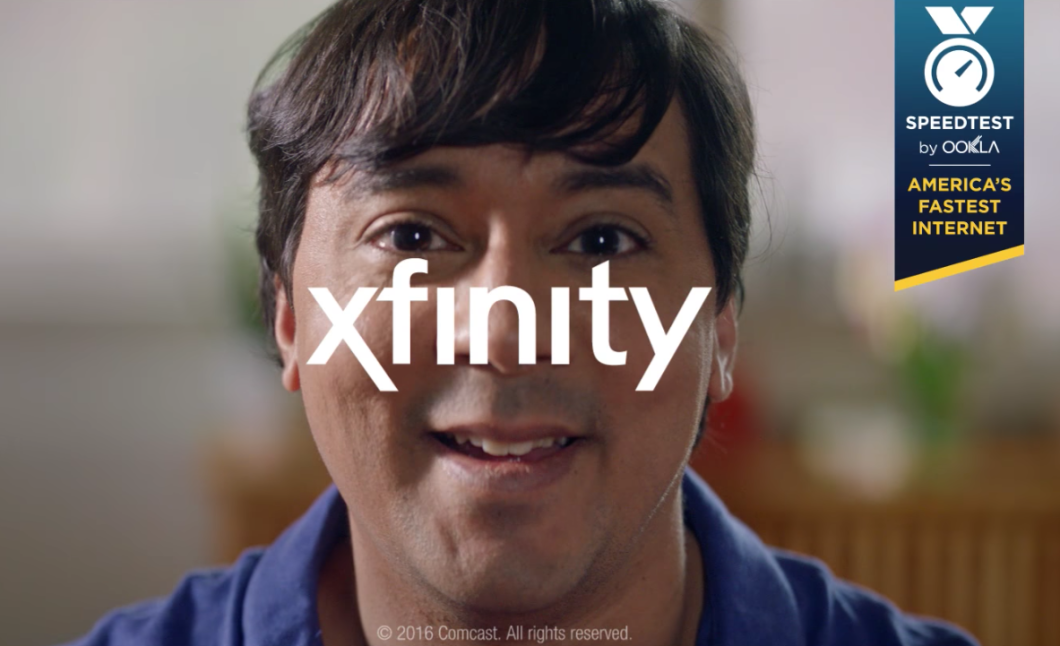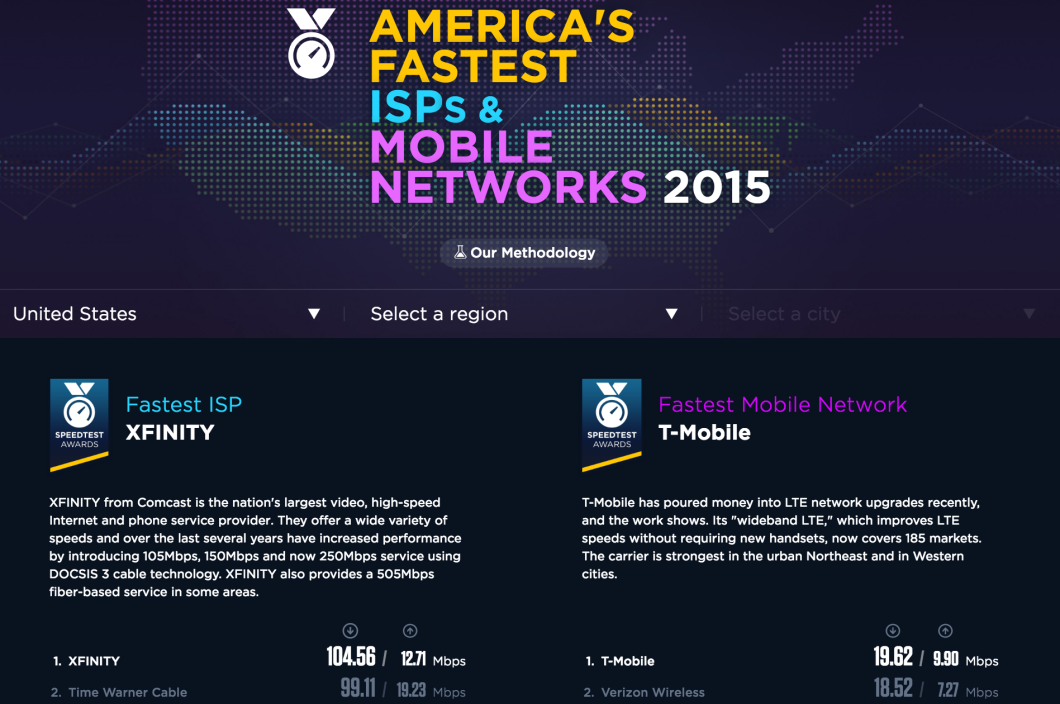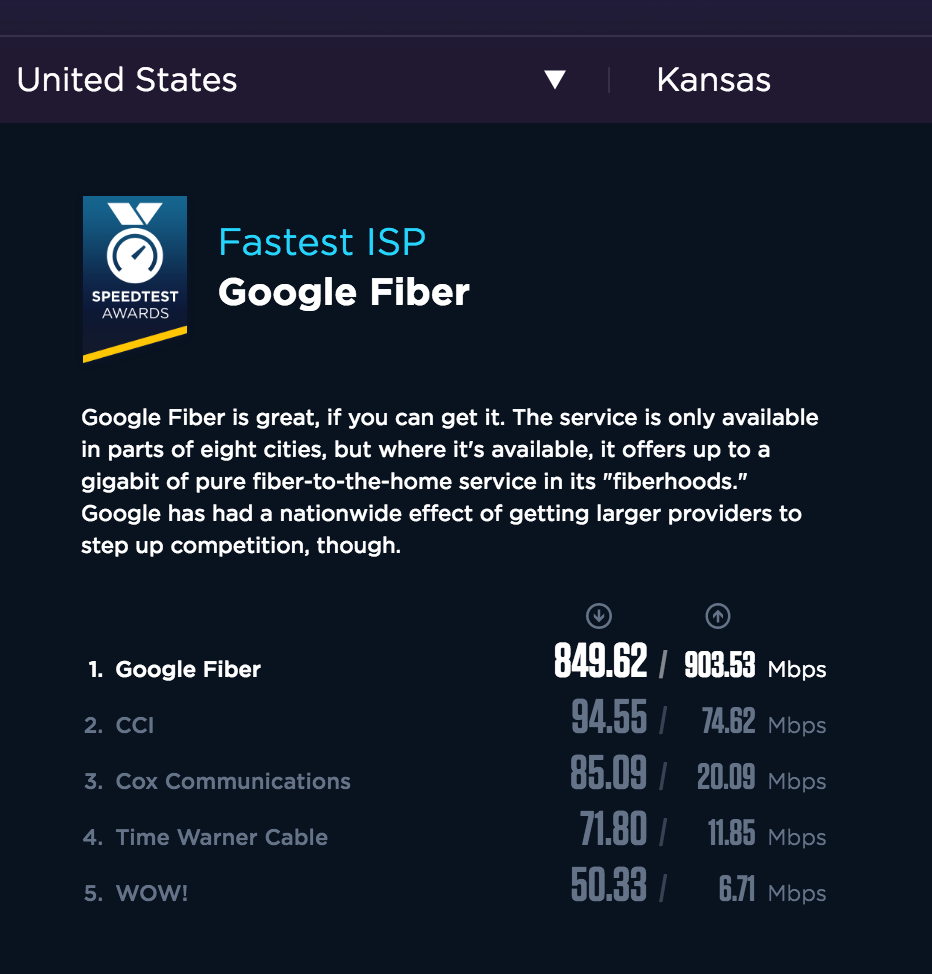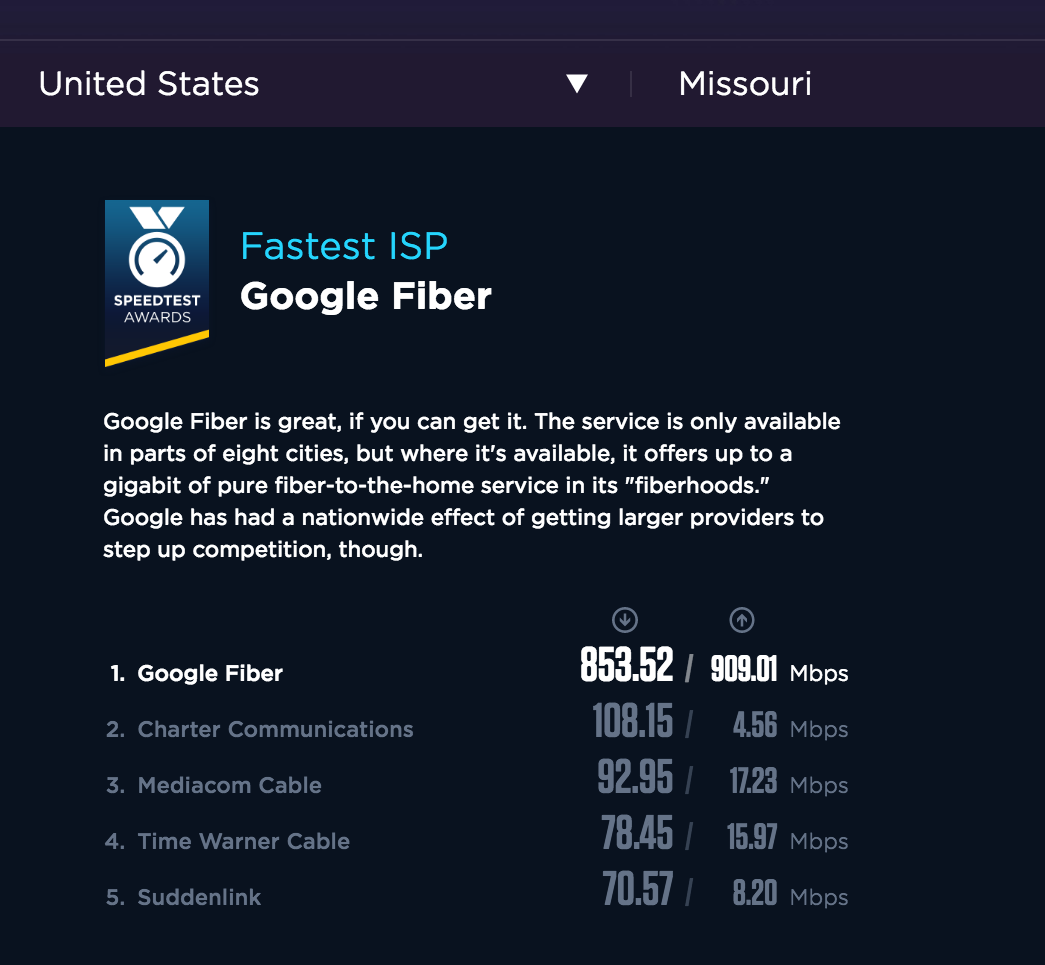Ad Watchdog: Comcast Should Stop Claiming “Fastest Internet In America”
If you live in one of the many parts of the country served by Comcast, you’ve likely seen the company’s nearly endless ads claiming that its Xfinity broadband “delivers the fastest internet in America,” and the “fastest, most reliable in-home WiFi.” However, an ad industry watchdog group has asked Comcast to rein in its bragging.
The National Advertising Division — an independent industry watchdog administered by the Council of Better Business Bureaus — investigated a complaint from Verizon that Comcast may be misleading consumers with claims about delivering the fastest internet and in-home WiFi.
The issue at the core of NAD’s decision is whether the data presented by Comcast accurately represents the products it sells. Making a statement that you deliver the “fastest internet in America” seems to imply that your service offers a superior speed to the competition. Of course, Comcast doesn’t just sell one tier of service. Instead, it sells a variety of tiers based on average download speeds. So does the “fastest internet” claim apply to all or just some tiers?
To substantiate its “fastest internet” claim, the Comcast ads cite an award from Ookla’s Speedtest, an app that allows users to measure the speed of their broadband connection:

The NAD investigators took issue with Comcast’s use of the crowdsourced Speedtest data to support the “fastest internet” boast.
True, Speedtest did indeed name Comcast as America’s Fastest ISP for 2015:

However, a look at the methodology for these awards shows that these figures are not representative of all speed tiers, or even of the average of those tiers. Instead, the figure Speedtest used to determine the nation’s fastest internet provider was obtained by looking at only the top 10% of download speeds measured by the Speedtest app.
The methodology notes even include the caveat that, because these top 10% speeds often come from users with faster tiers of service “these customers are generally paying a bit more for this higher performance service.”
Additionally, if you look at localized Speedtest awards results for Kansas and Missouri — where Google Fiber has been available the longest — you’ll see that Fiber kicks the ever-loving crud out of Comcast, with download speeds more than eight times faster than Comcast’s award-winning figure:
So why doesn’t Google Fiber or some other gigabit provider get the “America’s Fastest” trophy? Because the Ookla Speedtest awards also account for how widely available a service is.
“[W]hile one provider might be fastest in a particular city or region, they may not be suitable to be included in the fastest provider nationwide because they only serve a very small portion of that country,” explains the Speedtest methodology.
In the end, NAD says it “determined that Ookla’s methodology wasn’t a good fit for the purposes of substantiating Comcast’s overall superior speed performance claim.”
Following its review of the claim “fastest in-home WiFi,” NAD determined that in some contexts, the challenged claim conveyed the message that Comcast offered the fastest available wireless access to the internet (internet speed + router speed) and determined that consumers are likely to understand that the “fastest in-home WiFi” claim, standing alone, to mean that XFINITY’s wireless routers provided faster speed.
Regarding Comcast’s bragging about having the “fastest in-home WiFi,” the NAD found that the company could be more transparent.
Comcast’s ads claim that testing shows its in-home WiFi router delivers speeds of 725 Mbps, compared to 610Mbps for FiOS routers.
However, NAD said this boast only applies when users of the Comcast router are connecting to devices with 5GHz antennae, and that Comcast should disclose this fact.
In response to the NAD recommendations, Comcast said it “disagrees” and that it will appeal to the National Advertising Review Board.
What’s interesting is that Comcast has, for years, been accusing Verizon of making unsubstantiated ad claims about having the fastest internet. In fact, not even two months ago NARB told Verizon it should cease bragging in its ads that it’s ranked #1 in internet speeds, because that claim was based on a customer satisfaction survey and not any empirical measurement of connection speeds.
Want more consumer news? Visit our parent organization, Consumer Reports, for the latest on scams, recalls, and other consumer issues.



